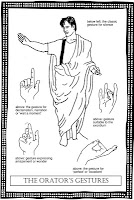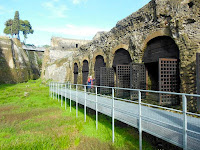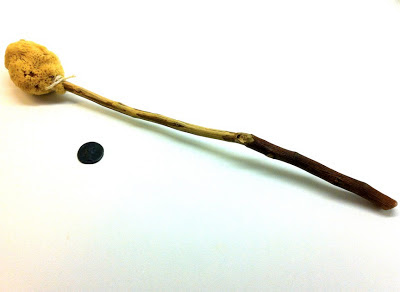 |
| Mark Wallace and Helen Cleaves |
The moment he uttered those words, I realised how much stories have determined the course of my life thus far. Here are twelve of the most important.
1. Nancy Drew Mysteries
The first books I devoured as a child. Not great literature but a girl with a brain who is empowered and independent despite her youth. I know now that I loved these books because Life is Mystery and we are all Detectives trying to solve it!
2. Star Trek
I loved the idea of space travel and going to exotic places and studying aliens. I also liked the idea of wearing a red mini-skirt while carrying a clipboard and working for Captain Kirk. Unfortunately I was rubbish at maths and had to abandon the idea of becoming an astronette.
 |
| Elsa Martinelli and baby elephants in Hatari! |
This unlikely John Wayne film totally captured my imagination. I realize now it was the chic camaraderie of the khaki-clad game hunters, Henry Mancini song and elegant Italian photographer Dallas that captured my imagination as much as the East African landscape and animals. I dreamt of giving my bedroom a safari-theme and of studying baboons when I got older. (Jane Goodall had chimps and Diane Fossey had gorillas so that left baboons!). In my imagination my grown-up self would resemble Elsa Martinelli (right) and marry a blond gamekeeper who looked like Hardy Kruger. Unfortunately I was rubbish at biology and had to abandon that idea.
4. The Last of the Wine
I was on my gap year, working in Switzerland but it was too expensive for me to do any skiing and I was trapped in a winter chalet room. I was toying with the idea of travelling around Europe, Morocco and Greece. My parents sent me two books to prepare me for Greece, should I make it there: The Iliad in translation and Mary Renault's historical novel The Last of the Wine. That glimpse of Ancient Greece was like a bolt from Zeus's hand. I became totally fascinated by people like us yet not like us in a richly-painted, sensory world. The ancient Greeks were even more fascinating than aliens or baboons! I signed up to study Classics at U.C. Berkeley and finally found something I wasn't rubbish at.
 |
| Marrying a second time in 1992 |
A scholarship took me to Cambridge but I found academia too dry. It was taking me away from the sensory world of ancient Rome. So I abandoned the idea of Classics as a career and looked for other work. A friend suggested getting a part time job in a London stockbroking firm. If you could design a job to be antithetical to my skills and interests, that would be it. But they hired me! A whirlwind romance with one of the partners ended in marriage and a baby. A chance conversation at a dinner party spurred me to try an experiment and see if God would answer a prayer, the first one I had ever made. He did. When I woke up the next morning, the whole world looked fresh and new. It really was like a "veil had been taken from my eyes." When my husband left me and our young son a few years later, my faith and my Christian friends were a huge consolation. They still are.
6. Drawing on the Right Side of the Brain
Visiting my family in Stanford when my son was about four, I was wandering the campus bookshop when Betty Edwards' brilliant book caught my eye. Sometimes you have to travel halfway around the world to find a book you could have bought at your corner bookstore. This literally eye-opening guide helped me teach children at my son's school how to draw. This led to a position for me teaching Latin as well as art. And teaching Latin to kids aged 8-11 revived my love for the Roman world.
 |
| Caroline and Richard 20 years on |
I loved this movie, but the thing I'll never forget is the pang of envy I had when Marty's dad gets delivery of a box of his latest book. I was jealous! Then I realised. Jealousy tells you the desires of your heart! Don't be green. Be grateful and befriend your rivals. They can be your best allies.
8. Master and Commander
My first marriage had broken up and when I met Richard Lawrence (above and right) on a church holiday. We immediately clicked. On our first date we discovered we were both reading and loving the fairly obscure (at that time) Aubrey-Maturin historical novels of Patrick O'Brian. That's when I knew it was "meant to be". Richard studied art and history at Cambridge so that was good too. Plus he was blondish and looked like Hardy Kruger if you squinted.
9. Becoming a Writer
Teaching was fun, but exhausting. I thought if I ever wanted to see if I could be a writer, I'd better make a start. Searching for books on how to write, I found this classic by Dorothea Brande. Written way back in 1934, Becoming a Writer taught me the most valuable lesson: it's all about self-discipline. But I still needed a method.
10. John Truby Story Structure
Sometimes God (or the Universe or Serendipity) puts things in your path right when you need them. A friend from church told me about John Truby's story structure audio course back when it was still on plastic cassettes. It was exactly what I needed, providing a structure upon which I could hang my ideas about ancient Rome and four children who might have lived there. My lightbulb concept was "Nancy Drew in Ancient Rome", and Truby's structure helped me write the first book of my Roman Mysteries series in the last two weeks of the summer holiday of 1999.
11. The Man Who Mistook his Wife for a Hat
I got a five-book publishing deal! But I still needed to work until royalties started coming in. This book by Oliver Sacks about anomalies of the brain helped me tutor kids as I phased out teaching and started writing full-time. It also also prepared me for the day when in 1996 - four years after we married - Richard had a massive stroke. I understood exactly what he was going through and my knowledge kept everything slightly removed, as if Richard was one of Sacks' case studies. Richard has since made an extraordinary recovery. He now illustrates my books, helps me with research and is the cook of the house.
 |
| Assistant head Graham Yates and KGS head Sarah Fletcher |
A librarian friend gave me this book. "You'll like it," she said. I didn't like it. I adored it! It was partly responsible for my latest series set in the American West. I dedicated The Case of the Deadly Desperados "to my friend Penny, who started me on this dusty trail when she gave me a copy of True Grit by Charles Portis."
During tonight's prize-giving at Kingston Grammar, head teacher Sarah Fletcher finished her speech with the words "Work hard and have fun." That's a rough translation of the Latin motto of the school bene agere ac laetari. I couldn't think of any better advice to give. Except maybe this:
Be careful what you read; a book could change your life!


















